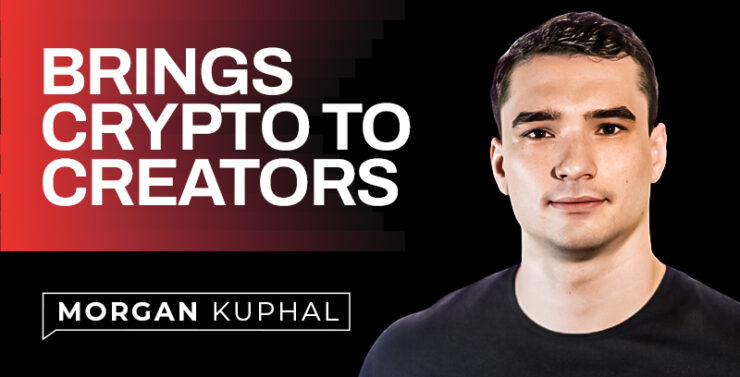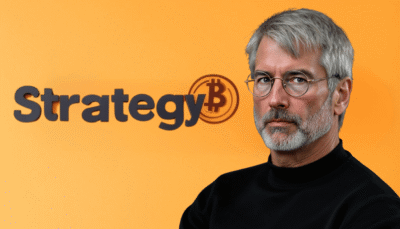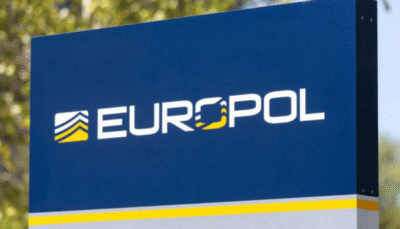In a space too often dominated by traders, token hype, and short-term incentives, Morgan Kuphal is building for a different class of user—the creators. As the CTO and co-founder of Tunnl, a fast-growing Engagement-as-a-Service platform, Morgan is laying the groundwork for a trustless, performance-based creator economy—where attention is earned, verified, and paid for transparently.
But before he was writing smart contracts, Morgan was soldering robots.
His path into Web3 didn’t start in crypto Twitter or an Ivy League dorm room. It started during college, when he built and sold an eCommerce business while studying robotics. That entrepreneurial itch led him to computer vision and industrial automation after graduation. But COVID-era constraints made it clear: the future wasn’t inside a warehouse—it was on-chain.
“I had some really great experiences in robotics, especially working with computer vision, which was kind of my passion at the time,” Morgan said on The CoinRock Show.
“But I quickly realized how much opportunity there was in crypto.”
What lit the fuse wasn’t a bull market or a whitepaper. It was a problem Morgan had faced firsthand: how to pay influencers fairly and transparently for promotional content. As a solo founder with limited resources, he couldn’t risk paying upfront and getting ghosted. But Web3, specifically smart contracts, seemed like the perfect solution—until he discovered their biggest limitation.
“You can escrow funds with a smart contract, but smart contracts can’t access the internet,” he explained.
“They can’t read Twitter. They can’t verify if a creator actually posted what you agreed on.”
This led Morgan to the Chainlink Hackathon in 2021, where he prototyped what would later become Chainlink Functions—a decentralized way to connect smart contracts to real-world data.
The prototype won. And so did Morgan.
He was recruited to Chainlink Labs, where he helped build the Functions platform from the ground up. But he didn’t stay long. The same itch that drove him to build in college was still there—only now he had the tools and experience to do it right.
From Chainlink to Tunnl: Engineering Trust in the Attention Economy
Tunnl was born from that same problem Morgan encountered years earlier: the lack of trust and transparency in digital marketing. In today’s creator economy, brands gamble upfront payments in exchange for engagement they can’t always verify. Morgan wanted to flip that model—turning content creation into a system where campaigns are funded transparently, verified by AI, and settled on-chain only after results are delivered.
Creators opt in. Algorithms verify the work. Payments are distributed automatically based on smart performance metrics like engagement rate, impressions, and following quality.
The result? A platform that has already onboarded over 2,000 users and launched 18 campaigns with more queued up. Tunnl doesn’t just promise transparency. It enforces it—with code.
“We’re building the infrastructure for content mining,” he said.
“You can escrow funds and then automatically release those funds after a creator actually posts whatever content you agree upon.”
This model doesn’t just benefit creators—it benefits brands, advertisers, and emerging Web3 projects too. Rather than hoping for virality or throwing money at unknown influencers, sponsors can now launch campaigns with programmable terms, measurable outcomes, and tamper-proof distribution.
Ignore the Noise. Build the Product
Despite Tunnl’s traction, Morgan remains refreshingly grounded. He doesn’t spend time staring at charts. He doesn’t chase speculative buzz. His philosophy is simple: build, test, iterate—then scale.
“I do my best to actually pay attention to markets as little as possible,” Morgan said.
“It’s such a distraction and it can be so demoralizing. If I were looking at price charts during a hackathon, it would have been ten times harder for me to show up and just do great work.”
That product-first approach isn’t just about focus—it’s also about survival. Morgan warns of the trap many founders fall into: rushing a token launch to capitalize on market momentum, only to derail their product’s trajectory and alienate the community.
He’s seen it happen. And he’s not afraid to say no.
“You launch a token too early, and now your entire community only cares about the token,” he said.
“They stop caring about your product. You’ve ruined your signal.”
For Morgan, tokens are tools—not trophies. If they serve a function, use them. But don’t mistake speculation for strategy.
What Comes Next: Stablecoins, Wallet UX, and Global Builders
As he looks ahead, Morgan isn’t chasing the next hype cycle. He’s laser-focused on boring—but—powerful tools with real-world traction. Top of that list? Stablecoins.
He sees massive potential in embedding stablecoin payments into existing platforms, particularly in regions where credit card fees and banking access remain barriers. And he’s bullish on builders who don’t try to reinvent the wheel, but improve what already works.
“If you have a volatile asset as your payment method, you’re already excluding yourself from most of the mainstream,” he explained.
“Building a wallet abstraction plus stable coins and integrating that into your app is probably one of the best things over the next two years to get traction with real mainstream audiences.”
In this vision, crypto becomes invisible. Users don’t need to know what a wallet is. They just need to know they’re getting paid quickly and fairly. And with infrastructure like Tunnl, that vision is closer than it sounds.
Behind the code, the strategy, and the growth metrics, Morgan Kuphal represents something that’s becoming rare in crypto: a builder who’s here for the long haul. Not to trade. Not to flip. But to solve the problems he once lived through—and build tools for people just like him.
Where to Find Morgan Kuphal
Want to follow Morgan’s journey and explore Tunnl? Here’s where to connect:





